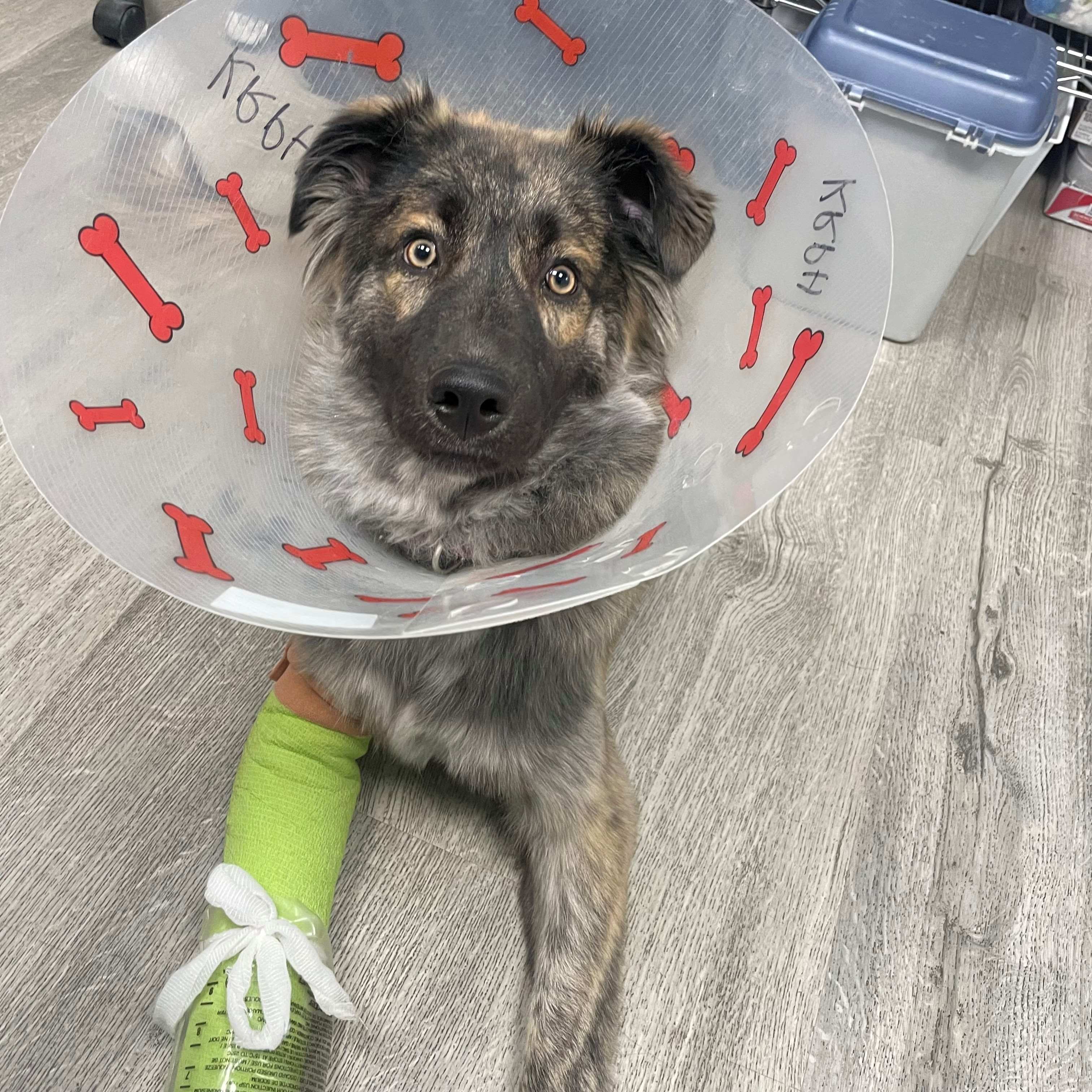Recently we made a public appeal for help with funding double leg surgery for Chloe the dog. Within 48 hours, our supporters had donated more than enough money to cover the $12,000 needed for orthopaedic repair to the cruciate tendons in both of Chloe's back legs. It was an incredible outpouring of kindness and charity in an effort to return Chloe to full mobility. Sadly, countless injured or mistreated dogs and cats are brought into our care each year with legs or paws that are beyond repair. In most of those cases, the only choice is amputation.
"Amputation"; it's such a harsh word and it's often accompanied by gruesome images of disembodied appendages and tales of slow, painstaking rehabilitation. At least, that's the human experience. The animal experience is a lesson in resilience and one that never fails to amaze me.
The first time I witnessed this was about five years ago, after a stray kitten came to us with a severely injured front paw. We estimated that the little grey tabby was just a few months old and otherwise healthy. I was told that amputation would be needed and surgery would happen soon, but as is the case so much of the time, I had a dozen other issues pending and I lost track of the little guy. A few days later, I walked into the building with the technician who had taken the kitten home after surgery.
"Oh right, that's the little one that had the leg amputation," I noted as the tech carried in the travel crate, "how's he doing?"
"Amazing," was the answer.
That surprised me. At the most, I expected a guardedly optimistic prognosis.
Excited and curious after the tech's response, I followed her into the treatment room to have a look for myself. What happened next surprised me even more. The tech proceeded to let the kitten out of his travel crate and he motored over to me as if absolutely nothing was wrong. I picked him up and he was purring and curious; no different than any other four-legged kitten I'd handled in my life. When I set him down, he was playful, bouncy and totally oblivious to the fact that he was horribly disfigured because he wasn't. To him, life was the same. He had quickly learned to walk, then run, with his three working legs.
In the five years since then, I've seen similar extraordinary recoveries by mature cats, small dogs, puppies, big Mastiffs and recently by a Boxer-Lab cross who not only needed a leg amputation but also needed an eye removed. Each and every time, without exception, these animals wake up from surgery and once the effects of sedation wear off, they're up and about and learning to navigate the world.
To this day, I'm astonished by this transformation and I'm reminded that we humans could learn a lot by applying this same, simple attitude to our own lives.
In the past when I've shared this concept with members of the public I've been met with shock, followed by a gentle lecture about the essential differences between animals and humans.
Animals don't have self-awareness.
Animals aren't burdened with wondering how they'll manage.
Animals don't care what other animals will think or why this happened to them.
All of that is absolutely true, but that doesn't minimize the effect of watching them adapt, adjust and move forward. It's inspiring.
As humans each of us at some point will be faced with medical issues or physical limitations. From simple ailments like a fractured arm or a sprained ankle, to a life-threatening diagnosis like cancer. Nobody escapes this life unscathed. Whatever the problem, whatever the situation, take a page from "Tripod" the dog or "Thumb Cruise" the kitten; get up, dust off, and keep moving forward. You'll be amazed the strength you can discover when you channel your inner little grey tabby.
Hot Off The Collar Blog
Lessons in resilience
Hot Off the Collar | Volume 36


FOR INSPIRATIONS, NEWS, EVENTS AND MUCH MORE
